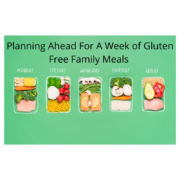What Is Early Intervention And Speech Therapy For Kids
Early Intervention is key to thriving in speech therapy for kids. Speech therapy helps children of all ages learn how to use language to communicate with family and peers. This post will help you understand exactly what speech therapy is, how to tell if your child would benefit from it, who it is for, and how to find a local provider.

Little sally was two years old at the time that my friend calls me to talk about her daughter’s communication skills. My friend is frustrated because her daughter is becoming increasingly frustrated and tantrums are starting to be the norm.
She is frustrated and having tantrums because she is not talking yet. Although little Sally knew what she wanted to say, she didn’t have the words to express herself yet. I’ll never forget my friend crying saying she feels like she runs around all day trying to figure out what her daughter is trying to tell her.
My friend pulls toys off the shelf. She pulls drinks and food out of the fridge saying “do you want this?”, “do you want that?” while her little girl, Sally, just cries or throws objects. My friend is exhausted from the tantrums. She’s also emotionally drained because she wants to be able to hear her sweet girl’s voice.
My friend wants to have conversations, play, go on walks, and talk about what she and Sally see outside. She wants to go to the park and watch her little girl start to follow the other kids around while chatting in their own little toddler language. She is missing out on these little things in life. Although they aren’t so little when you are in the thick of this. A speech therapy evaluation is exactly what I recommended to my friend. After all, early intervention is all about starting as early as possible to see the biggest progress.
What Is Speech and Language?
I think it’s important to explain what exactly speech and language is to better understand if your child may benefit from speech therapy.
Speech refers to articulation (how a child produces sounds), voice (how your child uses their vocal folds and breath to produce sounds), and fluency (rhythm of speech).
Language refers to how your child understands gestures/words and uses them to communicate and share ideas. Language is divided into two parts. Expressive and Receptive language. Expressive language refers to how your child uses gestures, sounds, and words to communicate with others.
Receptive language refers to how your child understands gestures, sounds, and words. Understanding what others are showing and telling you is part of receptive language.
A child can have difficulty with speech or language or both. Typically receptive language develops slightly faster than expressive language. Babies and toddlers learn what gestures and words mean long before they can actually express them in words.
The thing about speech and language development is there is a range of what is considered typical for babies and toddlers. This means that all babies can learn the same skill but at different times in development. Even though they learn the skill at different times they can still be considered within typical range.
For example one baby may start to babble as early as 4 months and another baby may start at around 6 months. Both are considered typical development.
Once you spot a sign that your child is having difficulty with speech and language development starting early is crucial. Early Intervention allows children to start therapy at a young age. This is critical because this is when the brain is developing and like a sponge.
Below Are Some Signs That Your Toddler (ages 1-3) Is On Track With Speech and Language Skills.
Expressive languages skills are listed from ages 1-3 below.
- They are using more words than gestures to communicate
- Using a variety of age appropriate sounds in words /p,b,m,t,d,k,g,w,h/
- By age two they are starting to put two word phrases together ex: “more milk” “no mommy” “mommy bath”. Also starting to put three words and more together around 2.5 years old
- They have a variety of nouns (milk, ball, bubble, bird, etc) , verbs (run, drink, go, eat), prepositions (on,in,off) and pronouns (I, my, mine, me) in their vocabulary
- They are able to use words for functions like labeling, commenting, answering simple questions, asking simple questions “what’s that”, “who’s that” “where ball”
- Familiar people like family and close friends can understand most of what your child is saying. Unfamiliar people still may not be able to understand some of what they are saying.
Receptively toddlers ages 1-3 years old should have the following skills: Skills are listed from ages 1-3.
- Points to simple pictures in books
- Can listen and enjoy simple books, songs, nursery rhymes
- Follows simple 1 step directions “roll ball”, “give me”, “come here”
- Responds to simple questions such as “where’s ball” (child will likely point to ball or go get it. they will most likely not answer with a word yet if closer to age 1)
- Understands new words daily
- Can answer simple questions with a simple word
- Follows two step directions “get the ball and give to me”
- Understands opposites like go/stop, fast/slow, in/out, on/off
What is Speech Therapy?
Speech Therapy for kids is when a licensed pediatric speech-language pathologist provides assessment and treatment of speech and language delays/disorders. A speech-language pathologist will work with your child one on one or in a group setting to improve communication skills for your child.
Speech Therapy can be completed in the home setting, daycare setting, school setting, or hospital setting. For early intervention services, there are many providers that come to your house to complete speech therapy in the child’s natural environment.
First, you will need an evaluation completed by a licensed speech-language pathologist. This involves a standardized assessment, gathering medical and developmental history, parent/caregiver concerns, and observations.
Who Would Benefit From Speech Therapy?
As a pediatric speech-language pathologist, that has worked in the field of early intervention (birth-5) for over 10 years, I have provided thousands of hours of speech therapy for kids. The children I work with range in severity but the common denominator is starting speech therapy early is key to helping your child learn communication skills.
Starting as soon as you or your pediatrician recognize there are concerns can possibly save your child from needing services once they start kindergarten. Babies brains are like sponges and they learn so much the first couple years of life.
If your baby is born at risk (born with a diagnosis, genetic syndrome, premature, or other causes that could potentially lead to developmental delays) then it is even more crucial to start as early as possible with early intervention therapy. Don’t wait until you notice red flags. You want to stay one step ahead.
Many families don’t know what typical speech and language development is. Especially if you are a first time parent and/or not in the field of child development you may not know what red flags to look for. No worries friend, I’ve got you covered with red flags below.
Red Flags Your Child Is Having Difficulty With Speech and Language Skills
- decrease in eye contact
- difficulty maintaining attention (for babies and toddlers their attention is already short but if your child is not able to keep looking at your during their favorite songs or toys then this could be a red flag)
- Difficulty with playing with toys appropriately
- No pointing or using gestures as a way to communicate
- Tantrums and difficulty calming self down
- Doesn’t respond to their name when called
- No first words by 15 months
- Less than 10 words by the age of 18 months. Less than 50 words by the age of two years old
- Appears to understand everything you say but has very few words they can express
- Appears to have difficulty making sounds (may see them grope or try to get words out but can’t)
- Sudden loss of speech and language skills
- No speaking clearly by age 3 (example: strangers still having trouble understanding them)
- Not interested in communicating
- Delayed motor skills (example: child is behind on other skills such as holding objects, sitting, crawling, standing, etc)
- Excessive drooling or difficulty sucking, chewing, or swallowing are also red flags that would warrant an evaluation
What to do If You think Your Child Needs a Speech Therapy Evaluation
First, I would say trust your gut. If someone tells you “just wait and see” or that “he/she will catch up” but you have concerns always follow your gut. Seek out help.
If you have a nine-month-old that has not started babbling yet and you worry about them then seek out help. Request your pediatrician send a referral to your local early intervention service or call a local speech therapy clinic. No worry is silly or too small. You know your baby best.
On the other hand, if your child’s nanny/teacher/pediatrician/relative have approached you with concerns please take their judgement into account. As hard as it is to listen to someone tell us they have concerns for our child’s development typically they have noticed something we haven’t.
Often times we are in the thick of the daily grind that we don’t notice small things that someone else might. It’s always best to listen with an open heart and mind, sleep on it, and observe your child to see if you now notice the “red flags” too. Then seek out help if needed.
Speech Therapy for kids is more common than most think. It’s a bridge to get your child on track so by the time they get to kindergarten they are ready to go. Depending on your child’s speech therapy needs they most likely will be on track the earlier you start therapy.
How To Find a Local Early Intervention Provider for Speech Therapy
Any parent/caregiver can contact their local early intervention service to make a referral for your child. Early Intervention is a state based program that provides developmental services such as physical, occupational, and speech therapy for kids ages birth-three. Check with your pediatrician or look up your states early intervention center. For South Carolina, ours is BabyNet.
Asha is the national board website for licensed speech-language pathologist. You can find a local provider HERE on their website by just simply putting in your city/state.
Tips For Helping Your Child’s Speech and Language Development Through Early Intervention
- label objects in their environment
- Talk to your baby as much as possible (research shows the more you talk to a baby the more language they are learning)
- Give toddlers time to process what you are telling them or asking them. Try not to repeat your question over and over. Allow time
- Instead of asking questions all the time, try to make comments (the younger a child is the easier a comment is to process versus a question)
- Model appropriate language (shorter phrases at first then adding on to your sentences as the child’s language develops)
- Giving a child a way to communicate such as using signs with the word
- Using cause and effect toys, simple board books, and familiar/repetitive songs that your child can imitate gestures or sing phrases of song
- Get down to eye level when communicating with them
- Put away the devices/ipad/phone and use face to face communication. Babies and Toddlers crave face to face communication and this is how they learn appropriate speech and language skills.
If this post was helpful you may enjoy my latest blog post that gives you 10 speech therapy for kids activities to do at home with your little one. You can check it out RIGHT HERE.













Trackbacks & Pingbacks
[…] HERE is an article on early intervention and speech therapy for kids. […]
[…] learn about typical language development see my latest post right HERE. You will find typical language development skills along with red flags for communication delays. […]
Leave a Reply
Want to join the discussion?Feel free to contribute!